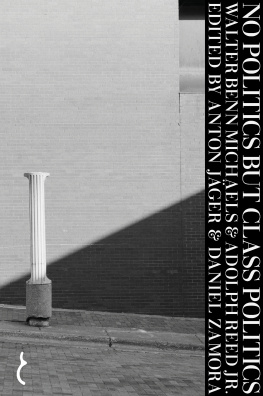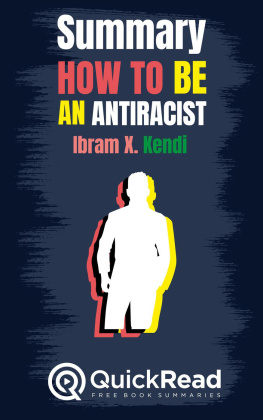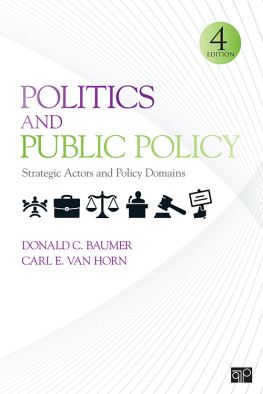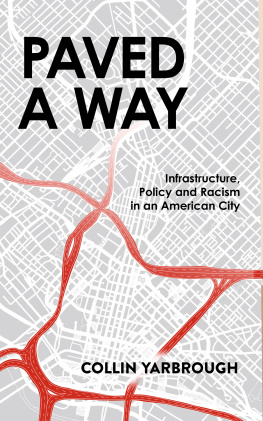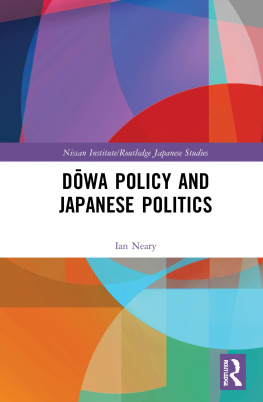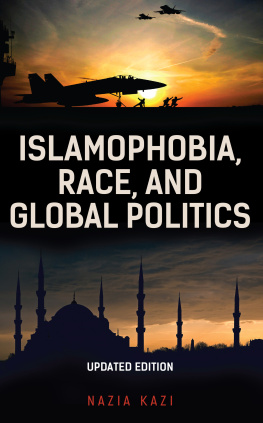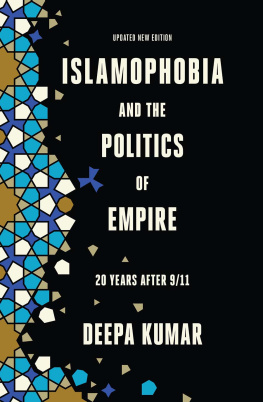

First published in Great Britain in 2017 by
Policy Press University of Bristol 1-9 Old Park Hill Bristol BS2 8BB UK Tel +44 (0)117 954 5940 e-mail
North American office: Policy Press c/o The University of Chicago Press 1427 East 60th Street Chicago, IL 60637, USA t: +1 773 702 7700 f: +1 773-702-9756 e:
Policy Press 2017
British Library Cataloguing in Publication Data
A catalogue record for this book is available from the British Library
Library of Congress Cataloging-in-Publication Data
A catalog record for this book has been requested
ISBN 978-1-4473-1958-0 paperback
ISBN 978-1-4473-1957-3 hardcover
ISBN 978-1-4473-1962-7 ePub
ISBN 978-1-4473-1961-0 Mobi
ISBN 978-1-4473-1959-7 epdf
The right of Karim Murji to be identified as author of this work has been asserted by him in accordance with the Copyright, Designs and Patents Act 1988.
All rights reserved: no part of this publication may be reproduced, stored in a retrieval system, or transmitted in any form or by any means, electronic, mechanical, photocopying, recording, or otherwise without the prior permission of Policy Press.
The statements and opinions contained within this publication are solely those of the author and not of the University of Bristol or Policy Press. The University of Bristol and Policy Press disclaim responsibility for any injury to persons or property resulting from any material published in this publication.
Policy Press works to counter discrimination on grounds of gender, race, disability, age and sexuality.
Cover design by Andrew Corbett
Front cover image: kindly supplied by the Met Collection, New York
Readers Guide
This book has been optimised for PDA.
Tables may have been presented to accommodate this devices limitations.
Image presentation is limited by this devices limitations.
For Rafi
Contents
This book is the culmination of my work over a number of years. One of the pleasures of marking that is the welcome opportunity to acknowledge some of the key people who I have worked with, learnt from and probably leant on at times: Gargi Bhattacharyya, Sara De Jong, Max Farrar, Vicki Harman, Michael Keith, Andrew King, Eugene McLaughlin, Andy Pilkington, Sarah Neal, Steve Pile, John Solomos, Sophie Watson and Kath Woodward.
A part of Chapter Two was presented at a seminar at the Centre Marc Bloch in Berlin; I am obliged to Sarah Masouz for the invitation and to participants for their comments. A version of Chapter Three was presented at a workshop on Racism and anti-racism in Nordic societies in Stockholm. I am grateful to Suvi Keskinen for inviting me and the participants for their feedback. Chapter Four was part of a conversation around the journal Sociology organised by Nasar Meer and Anoop Nayak, and I thank them for including me in that. Chapter Eight was first drafted for a Leverhulme Trust funded series on Framing Financial Crisis in Europe. I am indebted to Suman Gupta for including me in the seminars and to all the participants, especially Mike Hajimichael and Tao Papaioannou, who made it such a lively event to be part of.
I appreciate the helpful comments and support from the anonymous reviewers of the book proposal and the draft manuscript. I also want to record my thanks to Alison Shaw for raising the idea with me, and to Victoria Pittman and all the staff at Policy Press for helping me through to the end, even when it took a little longer than they expected.
The changing same
Racism, policy and politics speaks to the contemporary and intersecting fields of race, racism and anti-racism in relation to policy, politics and policing. There already are many books on race, on policy (for example see Neale et al 2013, Turda and Quine 2018) and on the police, so what does this one add to all of those? I want to highlight two things that make this work distinctive. One is biographical: while various sections of this book are based on conventional social science research, they also draw on my own immersion in public policy. I say more about that at the end of this Introduction, but here I indicate that this can be seen most directly in the discussions in Chapters Six and Seven, though it had wider import in framing the general orientation of this book. This engagement and experience reinforced for me a sense of disquiet I had about the academy, in particular about the ways in which policy and politics are sometimes understood and represented in academic scholarship, as well as the nature of critical scholarship, and the circularity of some debates around race and racism. This is the basis of the second claim to distinctiveness I want to make. The chapters in this book review, engage, critique and maybe reconfigure academic and scholarly takes on impact, engagement as well as public sociology/criminology and any other way of framing a purposive critical encounter with policy and politics. The need for this perspective arises from the contemporary and recent issues discussed in this book, which illustrate various paths and trends that form an impasse around race and racism, and around policy, particularly in relation to the police, and the sense of familiarity and echoes of the past in all of that.
This book begins with a critical appraisal of sociological and social science debates about what race is, and closes with a final chapter that examines ways in which scholars frame riots. A key issue that recurs throughout the book is the sense that these things not just riots, or debates about race but also many related matters are always, seemingly, changing, yet at the same time, they feel as if they are unchanging. This paradox is what the term the changing same speaks to, and I say a little more on this later. While racism and policing are public issues, they are also ones that have been the subject of sometimes intense academic scrutiny and commentary. The changing/unchanging puzzle is worrying, because it could be read as an indicator that a wide range of critical and engaged anti-racist scholarly research that aims to develop knowledge to analyse, reduce and even undermine racism, runs up against a political and policy environment in which its impact is limited; or perhaps that gains have been made and then lost, in a recurring cycle of progress and regress. Hence, the race-policy-politics nexus that this book is centred around is not another text on racism, sociology and the police; rather, its goal is to also draw into the frame an assessment of scholarly engagement itself.
As will become apparent, this focus is not done with the aim of assuming or reinforcing any dualistic view that positions academic social science outside of the real world; as I have already indicated, I am personally located within, and to an extent across, the frame. Through studies of others and my own involvement in public policy around race, policing research and policy, I recognise that there are no straightforward ways beyond some of the difficulties that I will set out. Those entanglements are not a by-product of the academic-policy interface; they are inevitable and even constitutive features of that relationship in any arena where racism is a contested topic. The contents and arguments of this book are not a call for any withdrawal from that; nor does the book share the view that the proper role of social science is solely analytical (compare Hammersley 2014). Rather, in setting out and clarifying some of the problems, it aims to promote more and better forms of public, political and policy-engaged critical scholarship.




